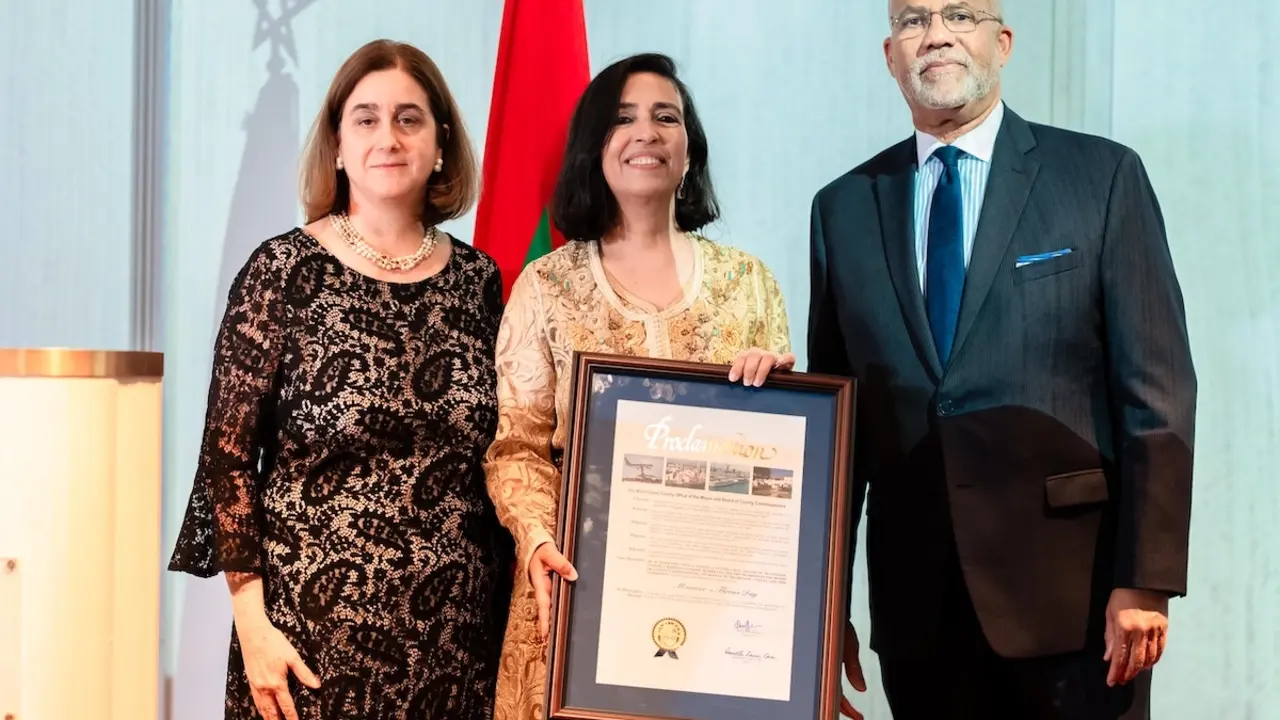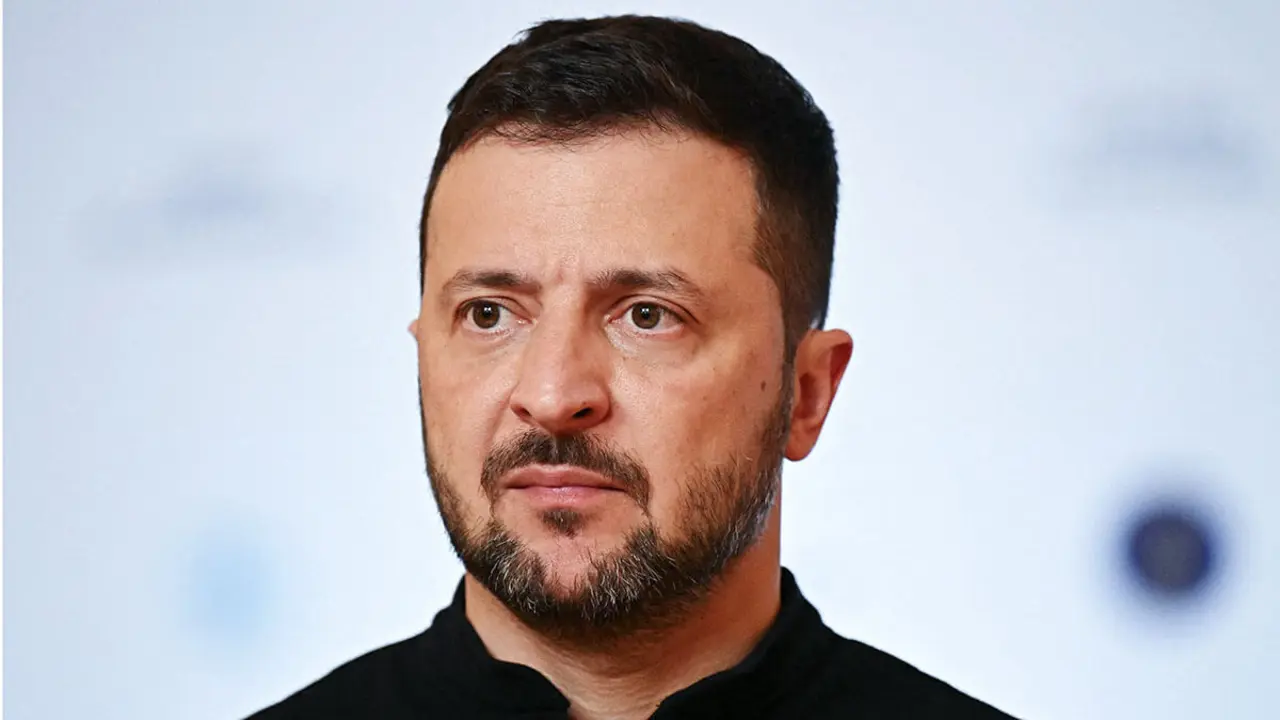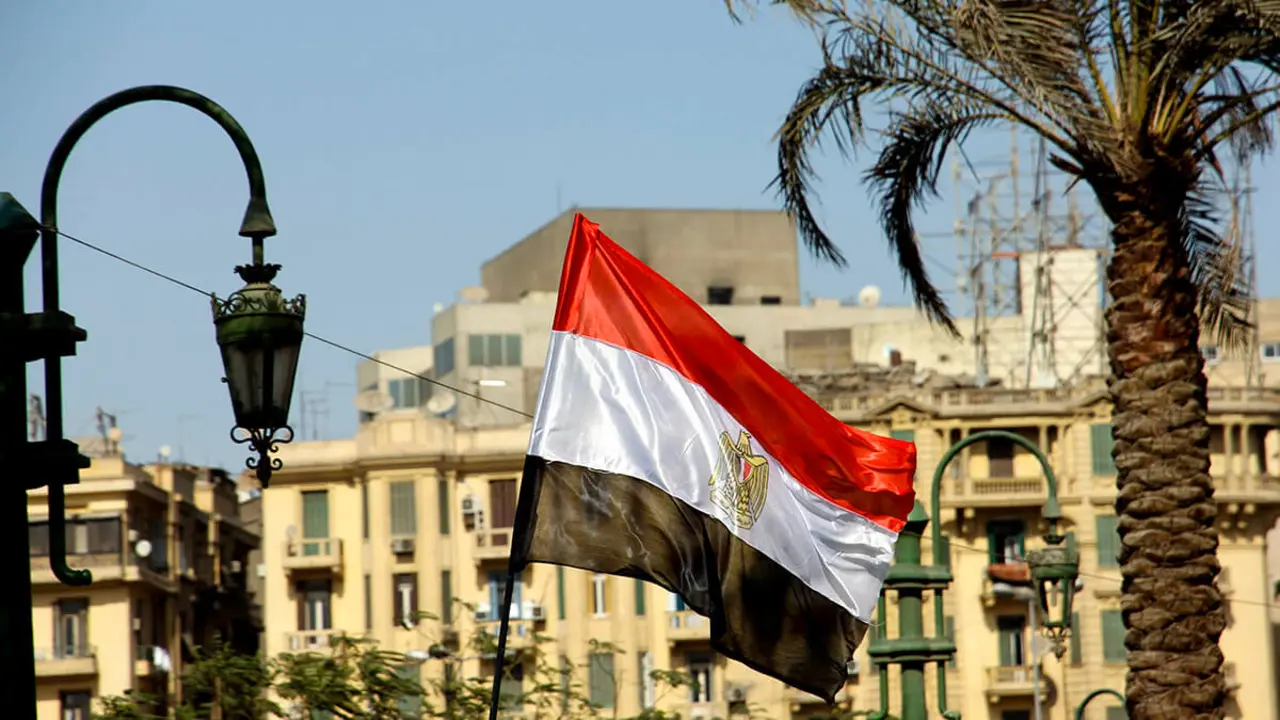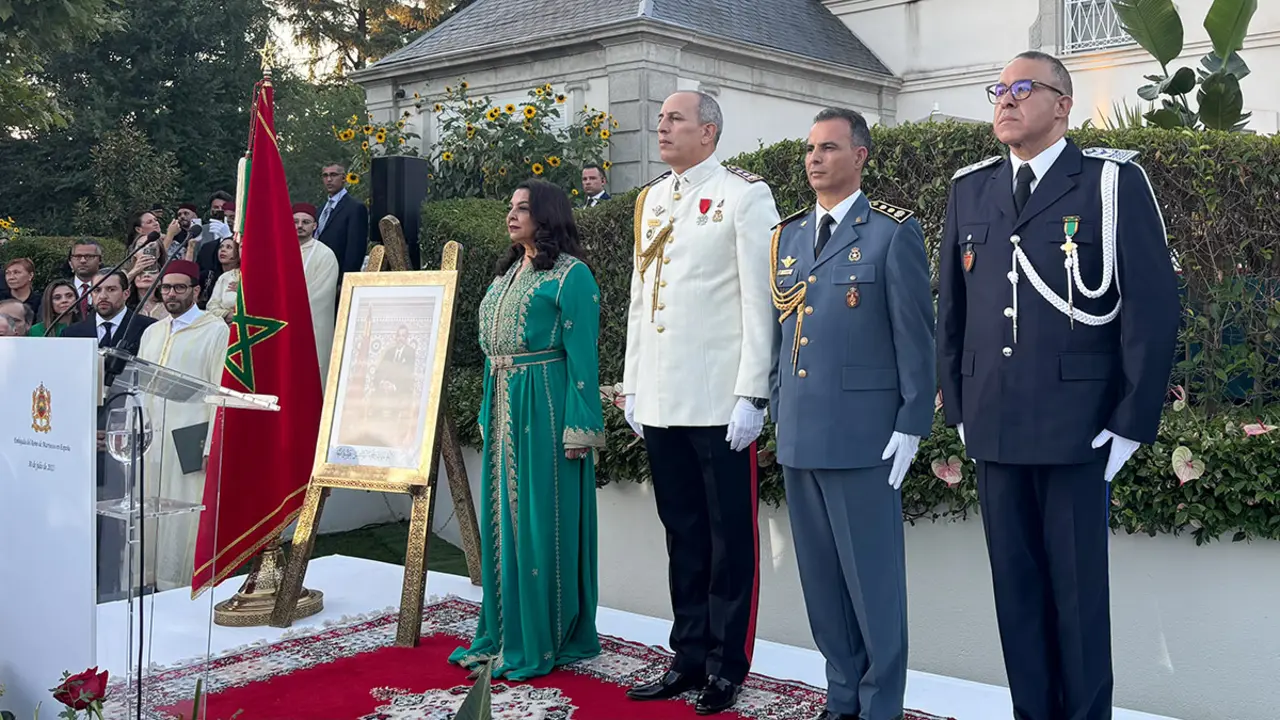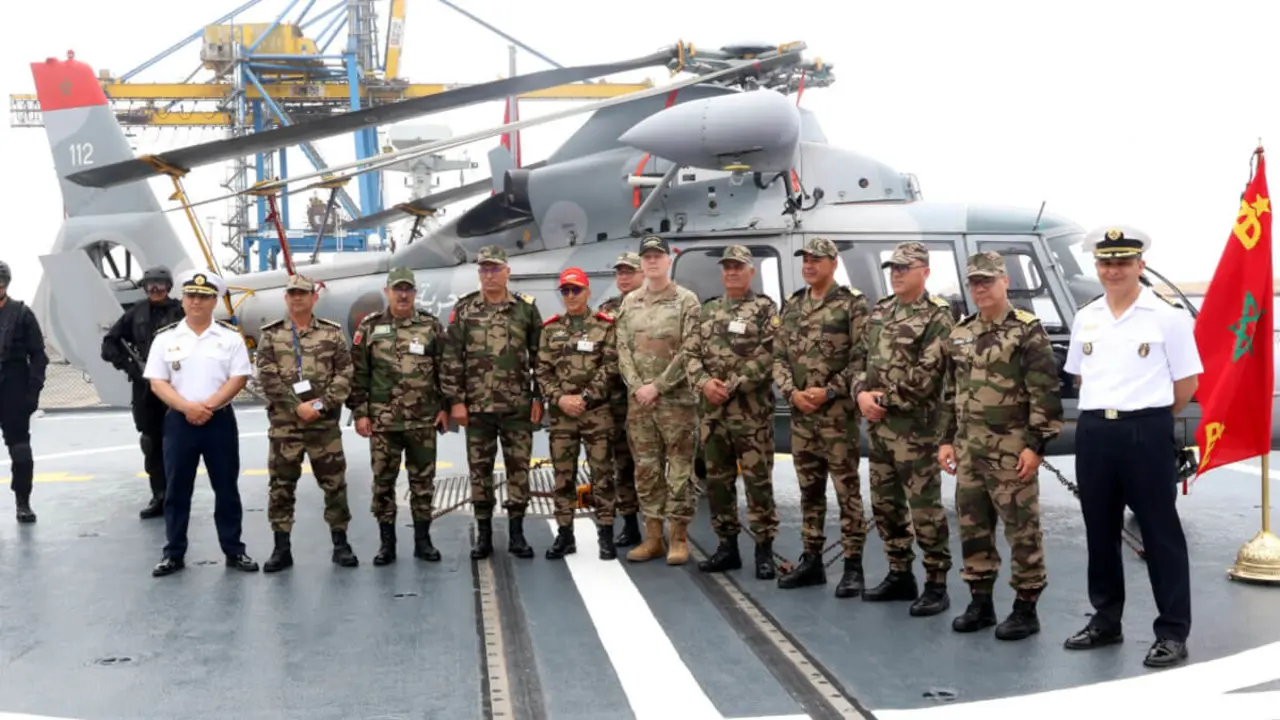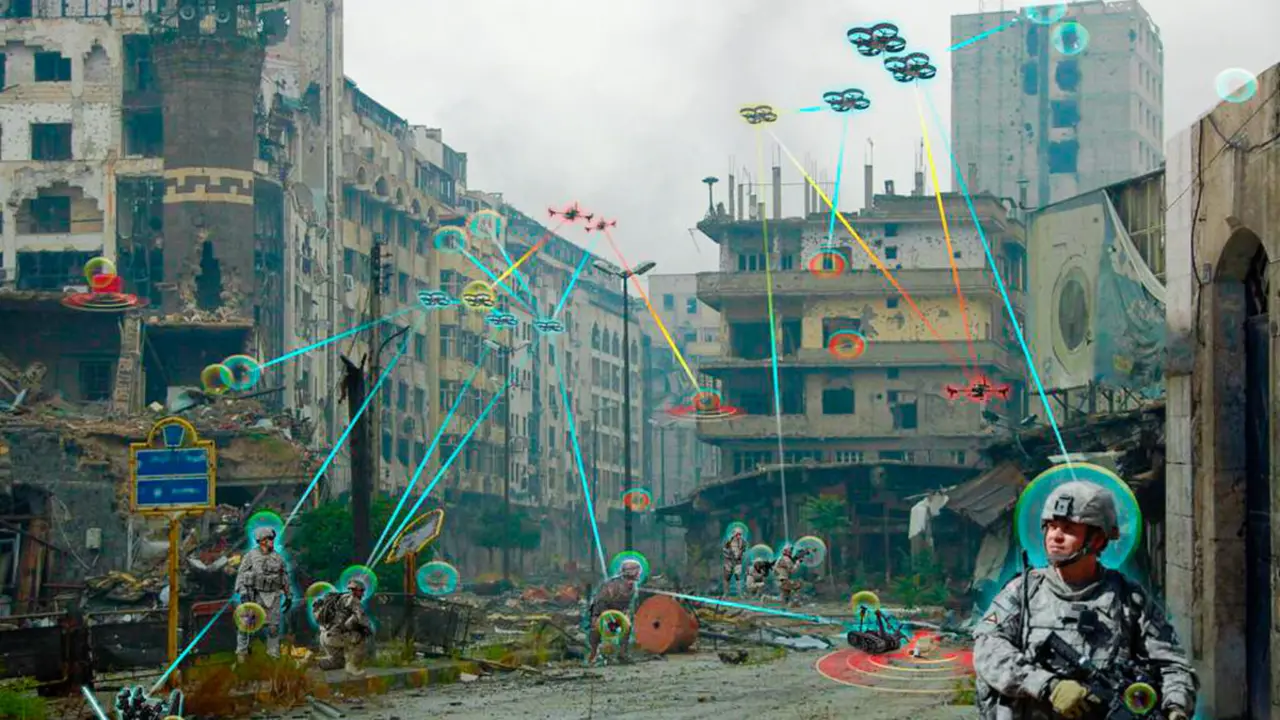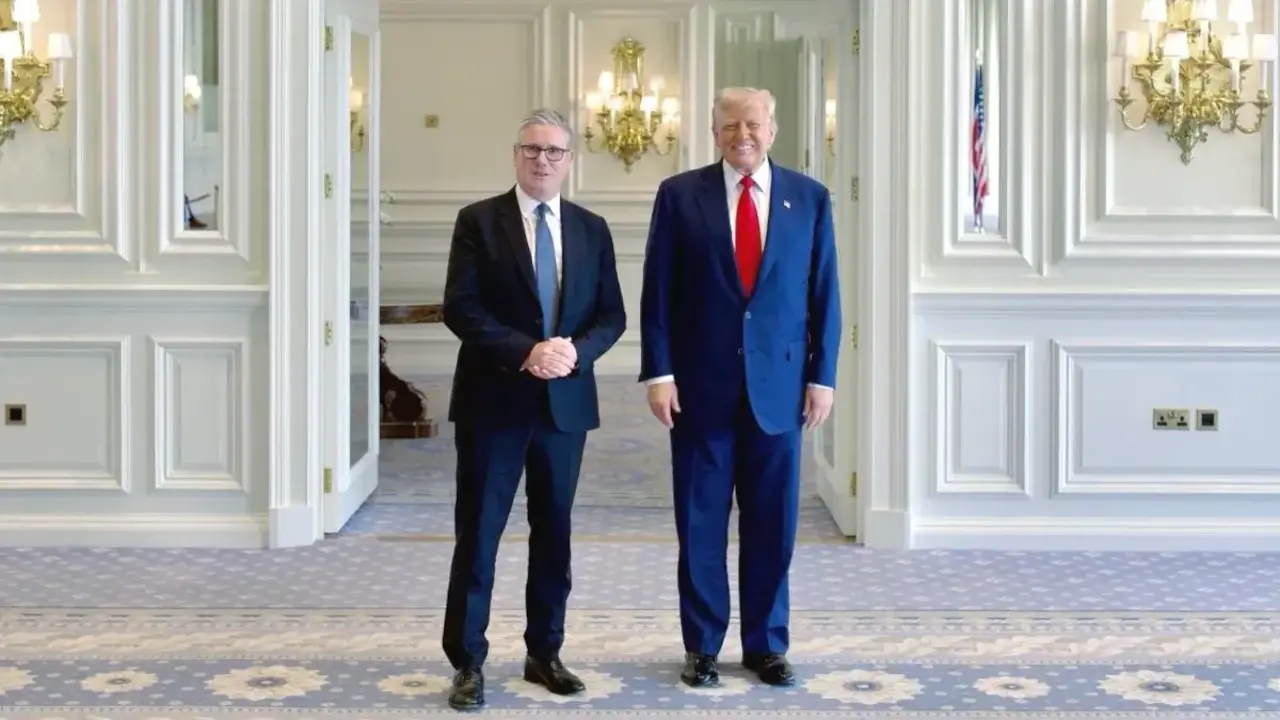ENERCLUB presents the IEEE publication "Energy and Geopolitics"
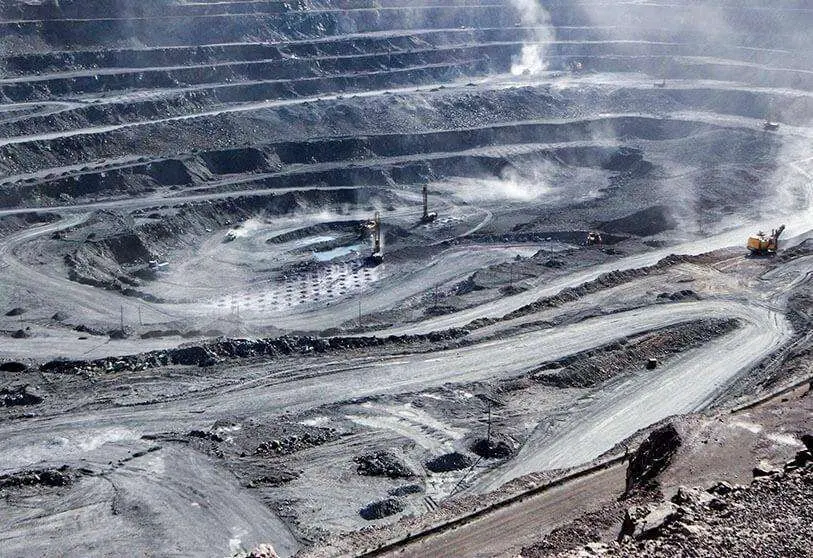
The Spanish Energy Club (ENERCLUB) has organised this Thursday a virtual event in collaboration with the Spanish Committee of the World Energy Council (CECME) and the Spanish Institute for Strategic Studies (IEEE) of the Ministry of Defence for the presentation of the eighth edition of the publication "Energy and Geostrategy". The report covers the global scenario in terms of natural reserves and its influence on diplomatic relations during the coming year.
The top representatives of the institutions, María Victoria Zingoni and Íñigo Díaz de Espada, were present during the presentation of the event together with Admiral Juan Francisco Martínez Núñez. For his part, the president of Repsol, Antonio Brufau Niubó, was in charge of opening the conference as a sponsor. The list of speakers was completed with the presence of the director of the IEEE, Francisco José Dacoba Cerviño; David Robinson, senior researcher at the Oxford Institute for Energy Studies; the economist Miguel A. Lasheras Merino; Ignacio Fuente Cobo, Colonel in the Spanish Army and advisor to the faculty of the NATO Defence College; Ricardo Prego Reboredo, Inorganic Chemist and Oceanographer and Research Professor at CSIC; and, lastly, Thijs Van de Graaf, Associate Professor of International Relations at the Ghent Institute of International Studies. The former Minister of Industry and Energy, Claudio Aranzadi, moderated the panel.
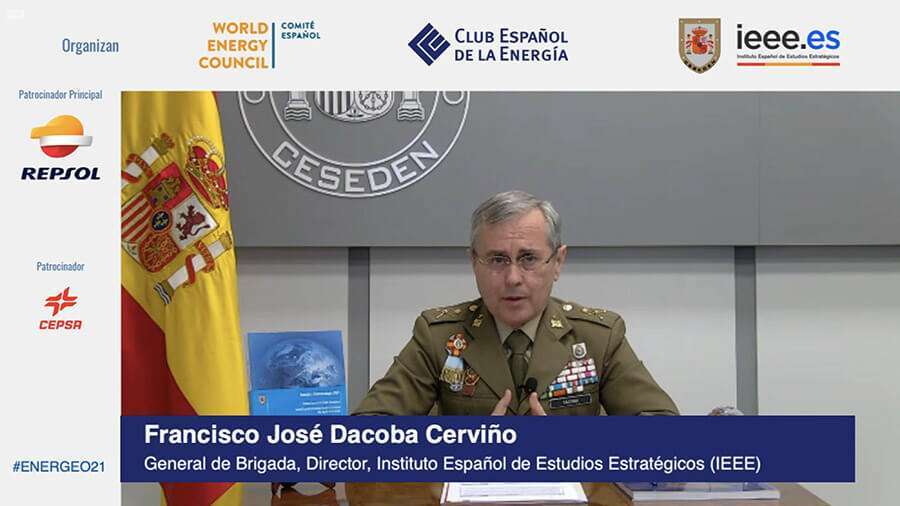
The topics of discussion were varied, but the geopolitical order and the importance of the new energy scenario in the light of the climate challenge were the common thread of the conversation. COVID-19 has brought about the biggest disruption to the energy sector in recent history. Global energy demand is set to fall by 5%, energy-related CO2 emissions by 7%, hovering around the values of the previous decade, and energy investment is set to fall by 18%, according to the World Energy Outlook 2020. Meanwhile, demand for natural gas will fall by around 3%, while global electricity demand will fall by a further 2%.
Among the main consequences of this new situation, caused by the fact that global energy demand will not recover until early 2023 or even 2025, is the uncertainty in the sector. Whether today's crisis represents a setback for efforts to achieve a more secure and sustainable energy system, or a catalyst for change, remains to be seen. In this sense, Repsol's chairman, Antonio Brufau, has assured that the Green Deal promoted by the European Union contains a series of advantages for those states that can take advantage of it. The aim is to make the continent the first climate-neutral continent.
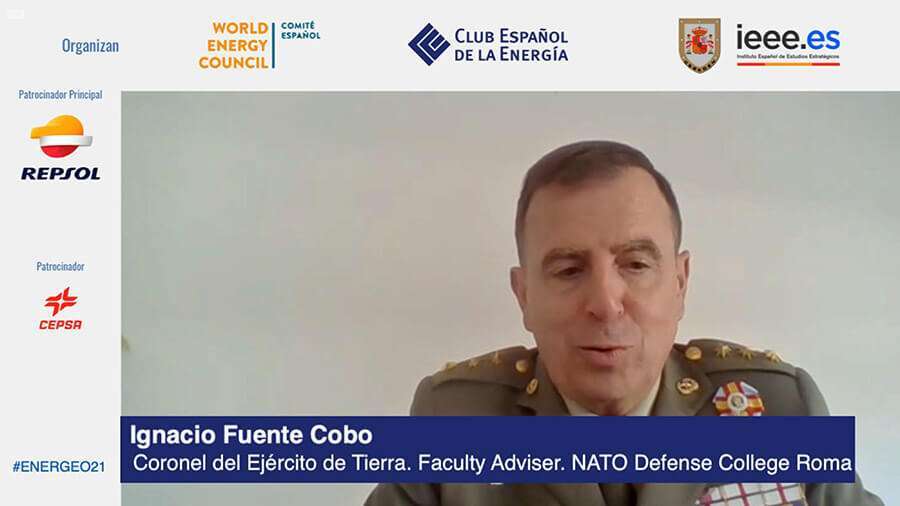
Brufau also underlined the importance of energy-related geopolitics and stressed that efforts should be directed towards digital progress. In other words, the new geopolitics based on the energy sector must include advances in the field of digitalisation that facilitate the protection of states and provide them with tools to deal with external threats. The clear example of this has been the cybernetic attack on the US Colonial Pipeline, according to the president of Repsol.
According to the director of the IEEE, Francisco José Dacoba Cerviño, the new geopolitical order would be governed by the Great Power Competition, that is, an open competition between the great superpowers such as the United States, Russia and China. This scenario is not good news for "middle powers" such as the European Union. The reason, according to Dacoba, is that it would be undesirable to be forced to depend on one of these giants, in our case the United States, to clash head-on with China. The example is the paralysed investment agreement reached between Europe and China last December.
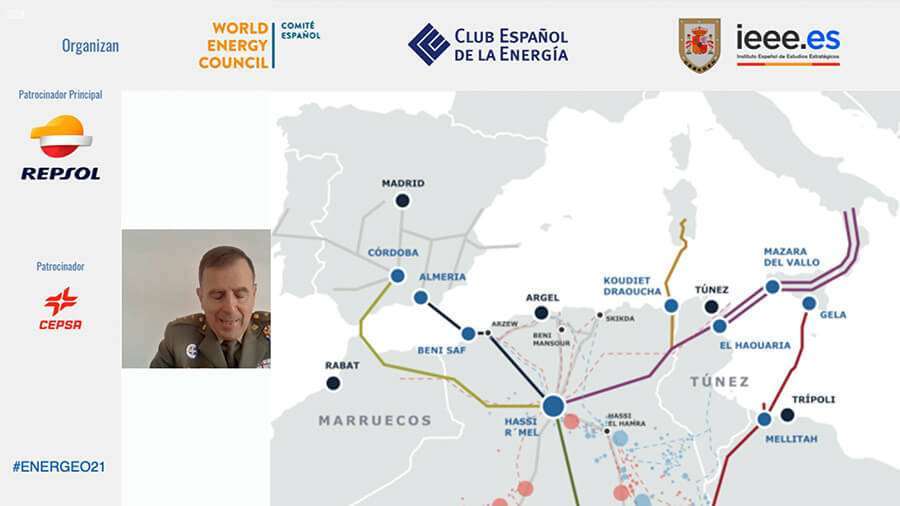
And the fact is that, "although obviously in terms of values we are much more united with North America, the same is not true, nor with the same clarity, if we talk about concrete interests", says Dacoba. "We will therefore have to look for possibilities of encounter and agreement in those areas in which it is possible with China and also in Russia, without ceasing to defend our inalienable principles of freedom, human rights, democracy and the rule of law".
The IEEE president's diagnosis is clear: "The great brake on the European Union's aspiration to great power status lies in the lack of internal cohesion of the union, a consequence of the partly logical divergence between the interests of the different member countries caused by their different perceptions of risks and threats, and also their divergent strategic sensitivities". We are at an existential moment for the European Union. Going backwards is not an option, standing still is the same as going backwards and, therefore, it seems that the logical evolution is to move forward in integration.
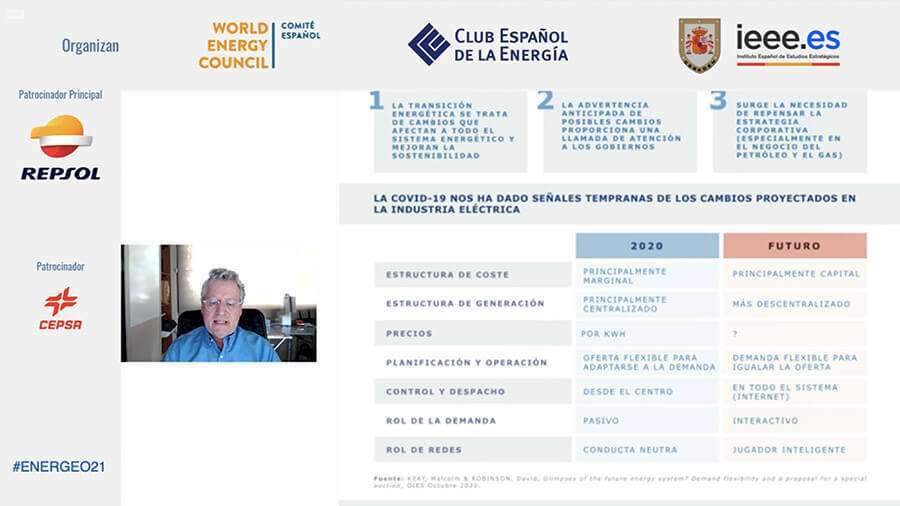
For Army Colonel and NATO Defence College faculty adviser Ignacio Fuente Cobo, Libya perfectly represents the collision between geopolitical and energy interests. The fratricidal division of the country has been a response to the tensions generated, in part, by the disparity of criteria or powers over reserves. "Nothing can be understood about what is happening in Libya without being aware of its resources," he says.
In short, the line drawn by the speakers converges on an essential point: the new world order is moving away from the liberal-democratic model and, despite the arrival of Joe Biden in the White House, the multilateralist trend has not returned, so that energy policies cannot be formulated by assuming common interests that no longer exist. Geopolitical rivalry has given way to economic confrontation and, unlike other health crises, this one is being used to deepen the confrontation between the main actors on the international stage. The main challenge now is to turn COVID-19 upside down in the energy sector and be creative in overcoming the new challenges.

